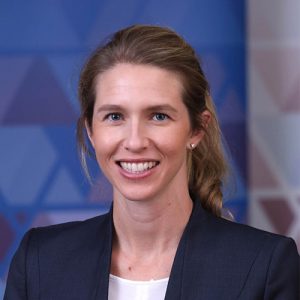
Dr Jennifer Massey’s research focuses on AHSCT (Autologous Haematopoietic Stem Cell Transplantation) and other therapies that deplete parts of the immune system. She is particularly interested in how the immune system regrows after these therapies. Dr Massey will analyse blood and plasma samples of people with MS prior to, and at specific time points following treatment with AHSCT.
Dr Massey aims to shed light on the underlying cause of MS and how, once depleted, the immune systems regrows or reboots to restore a functional immune system. Specifically, she aims to identify changes in the balance of white blood cells that prevent inflammation and white blood cells that cause inflammation. This will give us key insights into the immune system post-AHSCT, and may help in enhancing understanding of how AHSCT works for MS.
To date, several aims of the study have been realised using the St Vincent’s Hospital MS database and biobank. A deep exploration of white blood cells called lymphocytes has been performed in people with MS who have undergone AHSCT to better understand the immune reconstitution. The key findings are around the patterns of immune reconstruction following AHSCT, measuring different types of lymphocytes, and identifying important markers that may be implicated in MS relapses or worsening disease.
During AHSCT, there is initial immune depletion (by chemotherapy) and re-infusion of the stored immune stem cells. Immediately following these procedures, there is a very low count of immune cells called lymphocytes in the blood, known as “lymphopenia”. Dr Massey has found that a state of lymphopenia favours the regrowth of particular immune T cells that can suppress autoimmunity. By measuring immune cells up to 3 years after transplant, the study also showed that even after the number of immune cells has full restored, changes in T cell balance achieved by the transplant remain stable at 3 years post-transplant. Dr Massey’s work suggests that the main mechanism behind sustained remission from MS after AHSCT is related to the depletion of inflammatory immune cells. Interestingly, a specific type of T cell was detected after AHSCT in one patient at the time of a clinical relapse, and may potentially be associated with relapse, although further work is required to understand this phenomenon.
Dr Massey will now perform long-term monitoring of different types of B and T cells in reinfused stem cells before and after AHSCT to determine the influence of these cells on the outcome of AHSCT.
Updated: 31 March 2022
Updated: 21 January, 2020

Laboratory research that investigates scientific theories behind the possible causes, disease progression, ways to diagnose and better treat MS.

Research that builds on fundamental scientific research to develop new therapies, medical procedures or diagnostics and advances it closer to the clinic.

Clinical research is the culmination of fundamental and translational research turning those research discoveries into treatments and interventions for people with MS.

